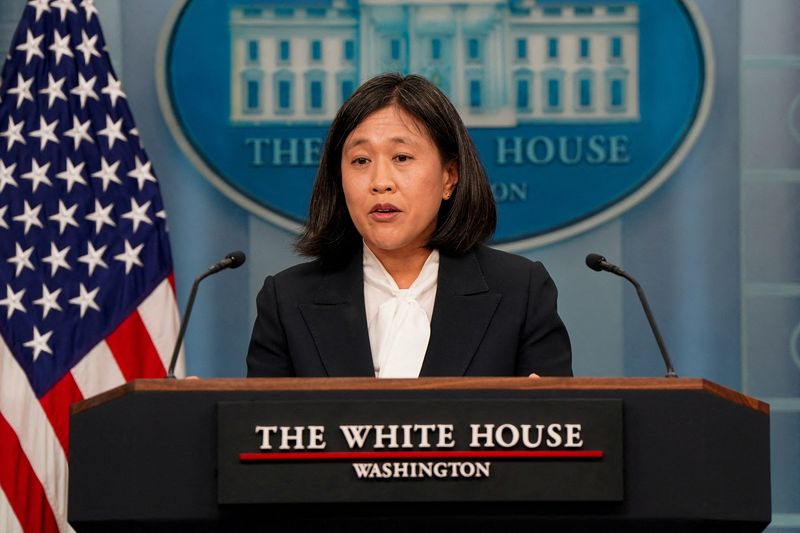By David Lawder
WASHINGTON (Reuters) – U.S. Trade Representative Katherine Tai on Thursday strongly backed Canada’s decision to impose a 100% tariff on Chinese-made electric vehicles and 25% on Chinese steel and aluminum, while shelving the planned U.S. import duties at similar rates.
In a statement from her office, Tai applauded Canada’s decision to take strong action against China’s “state-driven, unfair and anti-competitive non-market policies and practices, which threaten the survival of our market-oriented industries.”
She said this was an important step to ensure Canadian workers and companies could compete fairly in the electric vehicle, steel and aluminum industries.
“We share Canada’s concerns about the PRC’s unfair, non-market policies and practices and the PRC’s failure to uphold labor rights, enforce environmental protections and promote fair, market-oriented competition,” Tai said, using the acronym for People’s Republic of China. .
Canada announced Tuesday it will impose the tariffs starting Oct. 1, including on electric cars made in China by U.S.-based Tesla (NASDAQ:), to counter what Prime Minister Justin Trudeau calls deliberate state-led policies of China has mentioned. excess production capacity in these industries.

The move comes as the U.S. Trade Representative is expected to announce final implementation plans in late August for tariffs on $18 billion of Chinese imports, including duties of 100% on electric vehicles, 50% on semiconductors and solar cells, and 25% on lithium ion batteries.
Many U.S. companies have called for an easing of tariffs and expansion of exclusions, but a U.S. official told Reuters in Beijing that the expectation was that the Biden-Harris administration would move ahead with well-communicated intentions on the tariffs.


